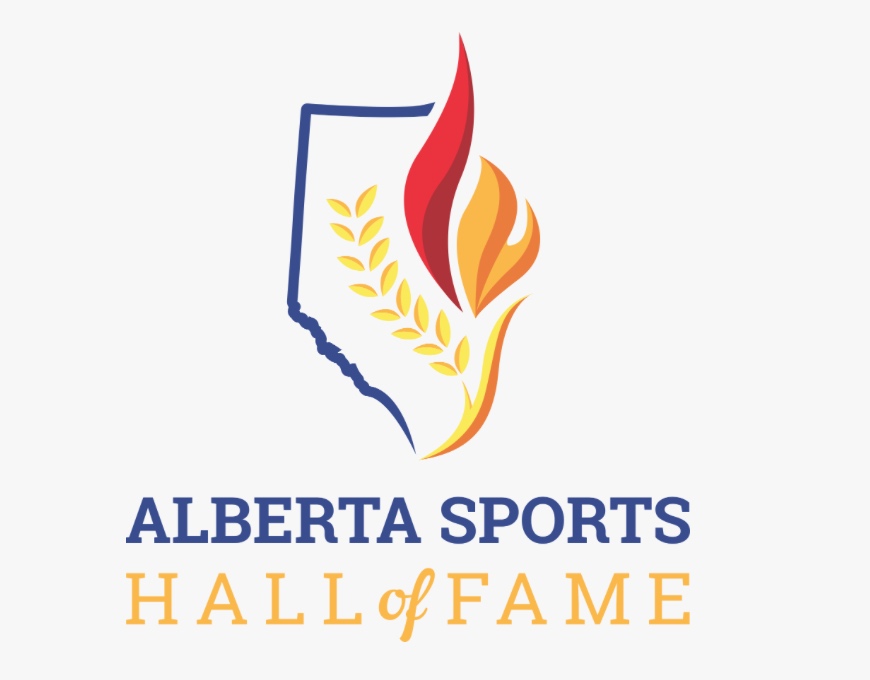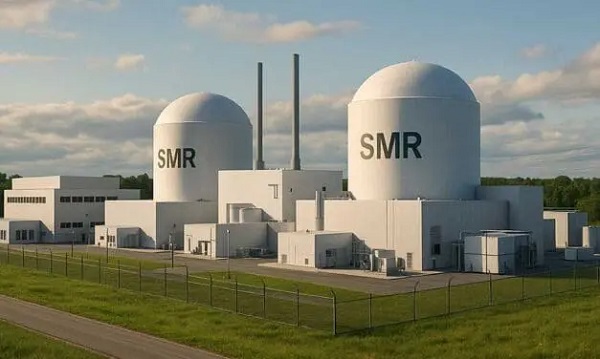Alberta
Alberta Sports Hall of Fame announces 2023 Inductees

|
|
Alberta
Alberta’s huge oil sands reserves dwarf U.S. shale

From the Canadian Energy Centre
By Will Gibson
Oil sands could maintain current production rates for more than 140 years
Investor interest in Canadian oil producers, primarily in the Alberta oil sands, has picked up, and not only because of expanded export capacity from the Trans Mountain pipeline.
Enverus Intelligence Research says the real draw — and a major factor behind oil sands equities outperforming U.S. peers by about 40 per cent since January 2024 — is the resource Trans Mountain helps unlock.
Alberta’s oil sands contain 167 billion barrels of reserves, nearly four times the volume in the United States.
Today’s oil sands operators hold more than twice the available high-quality resources compared to U.S. shale producers, Enverus reports.
“It’s a huge number — 167 billion barrels — when Alberta only produces about three million barrels a day right now,” said Mike Verney, executive vice-president at McDaniel & Associates, which earlier this year updated the province’s oil and gas reserves on behalf of the Alberta Energy Regulator.
Already fourth in the world, the assessment found Alberta’s oil reserves increased by seven billion barrels.
Verney said the rise in reserves despite record production is in part a result of improved processes and technology.
“Oil sands companies can produce for decades at the same economic threshold as they do today. That’s a great place to be,” said Michael Berger, a senior analyst with Enverus.
BMO Capital Markets estimates that Alberta’s oil sands reserves could maintain current production rates for more than 140 years.
The long-term picture looks different south of the border.
The U.S. Energy Information Administration projects that American production will peak before 2030 and enter a long period of decline.
Having a lasting stable source of supply is important as world oil demand is expected to remain strong for decades to come.
This is particularly true in Asia, the target market for oil exports off Canada’s West Coast.
The International Energy Agency (IEA) projects oil demand in the Asia-Pacific region will go from 35 million barrels per day in 2024 to 41 million barrels per day in 2050.
The growing appeal of Alberta oil in Asian markets shows up not only in expanded Trans Mountain shipments, but also in Canadian crude being “re-exported” from U.S. Gulf Coast terminals.
According to RBN Energy, Asian buyers – primarily in China – are now the main non-U.S. buyers from Trans Mountain, while India dominates purchases of re-exports from the U.S. Gulf Coast. .
BMO said the oil sands offers advantages both in steady supply and lower overall environmental impacts.
“Not only is the resulting stability ideally suited to backfill anticipated declines in world oil supply, but the long-term physical footprint may also be meaningfully lower given large-scale concentrated emissions, high water recycling rates and low well declines,” BMO analysts said.
Alberta
Canada’s New Green Deal

From Resource Works
Nuclear power a key piece of Western Canadian energy transition
Just reading the headlines, Canadians can be forgiven for thinking last week’s historic agreement between Alberta and Ottawa was all about oil and pipelines, and all about Alberta.
It’s much bigger than that.
The memorandum of understanding signed between Canada and Alberta is an ambitious Western Canadian industrial, energy and decarbonization strategy all in one.
The strategy aims to decarbonize the oil and gas sectors through large-scale carbon capture and storage, industrial carbon pricing, methane abatement, industrial electrification, and nuclear power.
It would also provide Canadian “cloud sovereignty” through AI computing power, and would tie B.C. and Saskatchewan into the Alberta dynamo with beefed up power transmission interties.
A new nuclear keystone
Energy Alberta’s Peace River Nuclear Power Project could be a keystone to the strategy.
The MOU sets January 1, 2027 as the date for a new nuclear energy strategy to provide nuclear power “to an interconnected market” by 2050.
Scott Henuset, CEO for Energy Alberta, was pleased to see the nuclear energy strategy included in the MOU.
“We, two years ago, went out on a limb and said we’re going to do this, really believing that this was the path forward, and now we’re seeing everyone coming along that this is the path forward for power in Canada,” he said.
The company proposes to build a four-unit, 4,800-megawatt Candu Monark power plant in Peace River, Alberta. That’s equivalent to four Site C dams worth of power.
The project this year entered a joint review by the Impact Assessment Agency and Canadian Nuclear Safety Commission.
If approved, and all goes to schedule, the first 1,000-MW unit could begin producing power in 2035.
Indigenous consultation and experienced leadership
“I think that having this strategy broadly points to a cleaner energy future, while at the same time recognizing that oil still is going to be a fundamental driver of economies for decades to come,” said Ian Anderson, the former CEO of Trans Mountain Corporation who now serves as an advisor to Energy Alberta.
Energy Alberta is engaged with 37 First Nations and Metis groups in Alberta on the project. Anderson was brought on board to help with indigenous consultation.
While working on the Trans Mountain pipeline expansion, Anderson spent a decade working with more than 60 First Nations in B.C. and Alberta to negotiate impact benefit agreements.
In addition to indigenous consultations, Anderson is also helping out with government relations, and has met with B.C. Energy Minister Adrian Dix, BC Hydro chairman Glen Clark and the head of Powerex to discuss the potential for B.C. beef up interties between the two provinces.
“I’ve done a lot of political work in B.C. over the decade, so it’s a natural place for me to assist,” Anderson said. “Hopefully it doesn’t get distracted by the pipeline debate. They’re two separate agendas and objectives.”
Powering the grid and the neighbours
B.C. is facing a looming shortage of industrial power, to the point where it now plans to ration it.
“We see our project as a backbone to support renewables, support industrial growth, support data centres as well as support larger interties to B.C. which will also strengthen the Canadian grid as a whole,” Henuset said.
Despite all the new power generation B.C. has built and plans to build, industrial demand is expected to far exceed supply. One of the drivers of that future demand is requests for power for AI data centres.
The B.C. government recently announced Bill 31 — the Energy Statutes Amendment Act – which will prioritize mines and LNG plants for industrial power.
Other energy intensive industries, like bitcoin mining, AI data centres and green hydrogen will either be explicitly excluded or put on a power connection wait list.
Beefed up grid connections with Alberta – something that has been discussed for decades – could provide B.C. with a new source of zero-emission power from Alberta, though it might have to loosen its long-standing anti-nuclear power stance.
Energy Minister Adrian Dix was asked in the Legislature this week if B.C. is open to accessing a nuclear-powered grid, and his answer was deflective.
“The member will know that we have been working with Alberta on making improvements to the intertie,” Dix answered. “Alberta has made commitments since 2007 to improve those connections. It has not done so.
“We are fully engaged with the province of Alberta on that question. He’ll also know that we are, under the Clean Electricity Act, not pursuing nuclear opportunities in B.C. and will not be in the future.”
The B.C. NDP government seems to be telling Alberta, “not only do we not want Alberta’s dirty oil, we don’t want any of its clean electricity either.”
Interconnected markets
Meanwhile, BC Hydro’s second quarter report confirms it is still a net importer of electricity, said Barry Penner, chairman of the Energy Futures Initiative.
“We have been buying nuclear power from the United States,” he said. “California has one operating power plant and there’s other nuclear power plants around the western half of the United States.”
In a recent blog post, Penner notes: “BC Hydro had to import power even as 7,291 megawatts of requested electrical service was left waiting in our province.”
If the NDP government wants B.C. to participate in an ambitious Western Canadian energy transition project, it might have to drop its holier-than-thou attitude towards Alberta, oil and nuclear power.
“We’re looking at our project as an Alberta project that has potential to support Western Canada as a whole,” Henuset said.
“We see our project as a backbone to support renewables, support industrial growth, support data centres, as well as support larger interties to B.C., which will also strengthen the Canadian grid as a whole.”
The investment challenge
The strategy that Alberta and Ottawa have laid out is ambitious, and will require tens of billions in investment.
“The question in the market is how much improvement in the regulatory prospects do we need to see in order for capital to be committed to the projects,” Anderson said.
The federal government will need to play a role in derisking the project, as it has done with the new Darlington nuclear project, with financing from the Canada Growth Fund and Canadian Infrastructure Bank.
“There will be avenues of federal support that will help derisk the project for private equity investors, as well as for banks,” Henuset said.
One selling point for the environmental crowd is that a combination of carbon capture and nuclear power could facilitate a blue and green hydrogen industry.
But to really sell this plan to the climate concerned, what is needed is a full assessment of the potential GHG reductions that may accrue from things like nuclear power, CCS, industrial carbon pricing and all of the other measures for decarbonization.
Fortunately, the MOU also scraps greenwashing laws that prevent those sorts of calculations from being done.
Resource Works News
-

 Censorship Industrial Complex2 days ago
Censorship Industrial Complex2 days agoDeath by a thousand clicks – government censorship of Canada’s internet
-

 Digital ID2 days ago
Digital ID2 days agoCanada releases new digital ID app for personal documents despite privacy concerns
-

 Energy2 days ago
Energy2 days agoCanada’s sudden rediscovery of energy ambition has been greeted with a familiar charge: hypocrisy
-

 Censorship Industrial Complex1 hour ago
Censorship Industrial Complex1 hour agoHow Wikipedia Got Captured: Leftist Editors & Foreign Influence On Internet’s Biggest Source of Info
-

 Energy2 days ago
Energy2 days agoCan we not be hysterical about AI and energy usage?
-

 Business4 hours ago
Business4 hours agoOttawa Pretends To Pivot But Keeps Spending Like Trudeau
-

 armed forces23 hours ago
armed forces23 hours agoOttawa’s Newly Released Defence Plan Crosses a Dangerous Line
-

 International2 days ago
International2 days agoRussia Now Open To Ukraine Joining EU, Officials Briefed On Peace Deal Say










